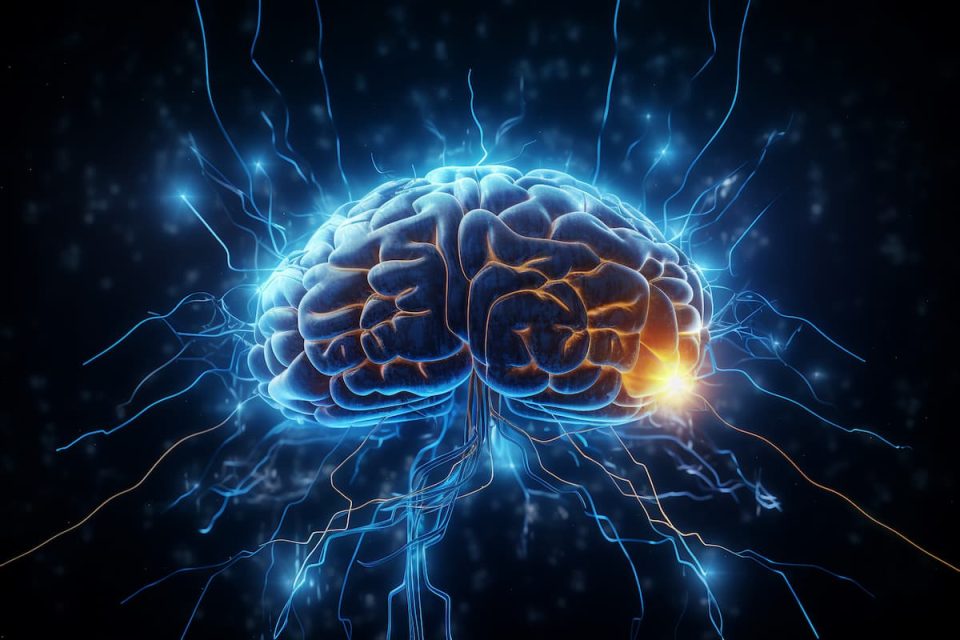It’s important to recognize that anxiety is not just a fleeting concern; it’s a significant issue that deserves attention. In our journey towards better mental health, understanding the link between anxiety and depression is crucial, so let’s take a closer look at how the two are connected and how to use that connection to help you feel better sooner.
Understanding the Connection: Anxiety as a Precursor to Depression
Anxiety is more than just occasional worry or stress. When it becomes chronic, it can significantly affect your daily life. It’s like a persistent whisper of fear, doubt, and apprehension, coloring your world with unease. But why is it so important to address?
Statistics reveal a startling connection between anxiety and depression. Research indicates that individuals with chronic anxiety are at a higher risk of developing depression. Specifically, studies suggest that about 50% of those diagnosed with depression also have a history of anxiety. This overlap isn’t coincidental; it’s deeply rooted in how our minds and bodies react to prolonged stress and worry.
Why Anxiety Can Lead to Depression
The journey from anxiety to depression isn’t a direct path but rather a gradual transition. Imagine anxiety as a seed. When nurtured by constant stress and unaddressed fears, this seed can grow into a larger, more pervasive problem—depression. Here’s why:
- Overlapping Symptoms: Anxiety and depression share common symptoms like fatigue, irritability, and difficulty concentrating. Over time, these shared symptoms can blur the lines between the two conditions.
- Physical and Emotional Exhaustion: Continuous anxiety can be draining. It’s like running a marathon with no finish line in sight. This exhaustion can diminish your resilience, paving the way for depression.
- Negative Thought Patterns: Anxiety often involves persistent worry and negative thinking. Over time, these thoughts can become ingrained, leading to a depressive outlook on life.
Treating Anxiety: A Pathway to Preventing Depression
Here’s the good news: Anxiety is treatable, and in addressing it, we can often prevent the onset of depression. Treatment for anxiety varies based on individual needs. Below, we discuss some common and new approaches to treating anxiety.
- Therapy: Of all available forms of therapy, Cognitive Behavioural Therapy (CBT) is the most effective when it comes to changing negative thought patterns and behaviors associated with anxiety. If you are struggling with negative thinking and need the help of a therapist to identify your recurring thought patterns and to substitute them for more positive ones, CBT may be a good first step. The therapist will encourage you to monitor your thoughts and to take small steps towards gradually facing situations that cause you anxiety.
- Regular exercise: Regular exercise is a powerful tool in managing anxiety, serving as a natural stress reliever and mood booster. When you engage in physical activity, your body releases endorphins, often known as ‘feel-good hormones’. These endorphins act as natural painkillers and mood elevators, reducing stress and fostering a sense of well-being. Additionally, exercise helps regulate the body’s stress hormones, such as adrenaline and cortisol, bringing them to a more balanced state. The rhythmic, repetitive movements involved in activities like walking, running, or swimming can also have a meditative effect, allowing you to break the cycle of constant worry and find a moment of mental clarity and calm. Beyond its immediate mood-enhancing effects, regular exercise also boosts self-esteem and resilience over time, making it a crucial component in a holistic approach to managing anxiety.
- Mindfulness Meditation: Meditation is an effective tool for managing anxiety, as it fosters a sense of mental clarity and calm. It teaches you to focus on the present moment, rather than getting lost in worries about the future or regrets about the past. Through regular meditation, you learn to observe your thoughts without judgment, recognizing that thoughts are transient and not an accurate reflection of reality. This practice helps in detaching from negative thought patterns that fuel anxiety. Additionally, meditation enhances self-awareness, allowing you to better understand your triggers and reactions. It encourages a state of relaxation by activating the body’s relaxation response, a physiological state that counteracts stress. Over time, meditation can rewire the brain to reduce the reactivity to stress and anxiety, giving you greater control over your emotional responses and fostering a sense of inner peace.
- Medication: In some cases, medication may be recommended as part of your treatment plan. These are not a ‘cure-all,’ but they can be an effective tool in managing symptoms. However, it is important to be aware that medications prescribed for anxiety can come with a range of side effects that vary depending on the type of medication and the individual. Common side effects include drowsiness, dizziness, and increased fatigue, which can impact daily activities. Some people may experience dry mouth, blurred vision, or headaches. Gastrointestinal issues like nausea or constipation are also not uncommon. In some cases, individuals might notice changes in their weight or appetite. Additionally, certain anxiety medications can lead to dependence or withdrawal symptoms if not managed properly. It’s important to discuss these potential side effects with a healthcare provider to understand the risks and benefits and to find a treatment plan that works best for the individual’s needs.
- FLOW Method: The Five Level Wellness (FLOW) Method is an innovative approach to treating anxiety, embracing a truly holistic perspective. Unlike traditional methods that may focus on just one or two aspects of wellbeing, the FLOW Method recognizes the interconnectedness of the five fundamental levels of a human being: physical, emotional, mental, social, and spiritual. By addressing each of these areas, the FLOW Method not only aims to eliminate ongoing anxiety but also brings about a multitude of other benefits. Firstly, it enhances overall well-being, as the balance across all levels leads to a healthier, more harmonious state of being. Secondly, it improves resilience, equipping individuals with the tools to better handle life’s challenges and stresses. Thirdly, the method fosters deeper personal connections, as the social and emotional aspects encourage more meaningful relationships. Lastly, it promotes a sense of purpose and fulfillment, as the spiritual dimension helps individuals align with their core values and beliefs. This comprehensive approach ensures that treatment is not just about managing symptoms but about nurturing a fulfilling and balanced life.
Embracing Hope and Taking Action
Remember, recognizing and treating anxiety is not just about avoiding depression; it’s about improving your overall quality of life. By confronting your anxiety, you’re taking a powerful step towards a happier, more fulfilling future.
Anxiety might feel overwhelming, but it doesn’t define you. With the right support and strategies, you can overcome it. Think of this journey as an investment in yourself—a step towards unlocking your true potential, free from the chains of unmanaged anxiety.


